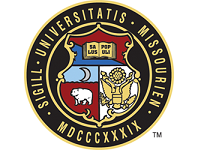Before You Travel
S&T IT provides tips on how to protect University data and hardware for faculty and staff international travels.
International Traveling Guidelines
 https://www.umsystem.edu/ums/is/infosec/standards-travel
https://www.umsystem.edu/ums/is/infosec/standards-travel
Click here to see more information about the UM System Information Security Travel Standard and tools.
Mobile Devices
1. Set the device to require a passcode.
2. Enable GPS tracking so that a stolen device may be tracked
- iPhones and iPads: enable "Find My iPhone"
- Android devices: enable "Android Device Manager"
3. If your mobile device is connected to the S&T email system, notify the Help Desk in the even of theft. S&T devices may be able to be wiped remotely.
Laptops
- Use a departmental loaner laptop containing no sensitive informaiton is strongly recommended in lieu of taking a personal or University-owned device that contains any type of sensitive or restricted data.
- Encryption is recommended in all cases. It is required for computers containing DCL4 Data.
- Obtaining and using a Kensington-style lock should be used to deter theft. These locks are inexpensive and suported by vitrually all laptops.
- Use a generic carrying case so theives can't readily identify that you're traveling with a laptop.
- When flying, do not check your lapotp. Carry it on the plane with you.
- When traveling by car, lock your laptop in the trunk or otherwise keep it out of sight.
- Take a legible copy of your receipt for recently-purchased electronic equipment.
- For devices made in a foreign country, you may be required to pay duty on it every time you return to the United States unless you can prove that you owned it before you departed the country.
Storage Devices
- Use a new device, such as a thumb drive, that has never contained confidential data. Even if a drive has been formatted or files have been deleted, documents can still be recovered.
- Encryption is recommended in all cases. It is required for devices containting DCL4 Data.
